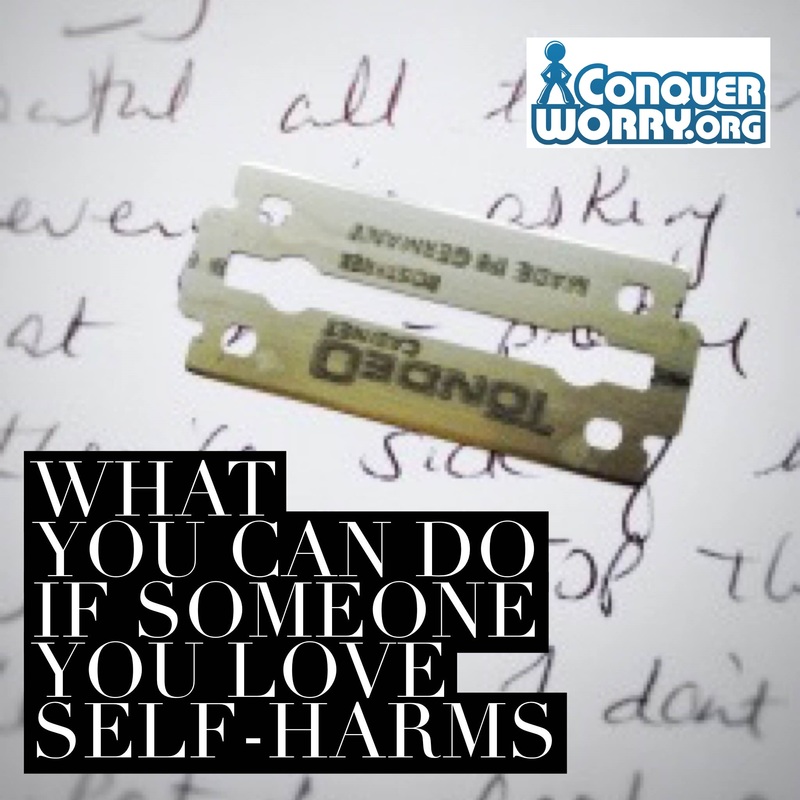|
Guest Post by Sally O'Reilly Edit and Post Design by Christy Zigweid Image by Geralt via Pixabay Design made in Canva I've taken up running again (grateful nod to the best physio in the world), and to keep me company I've downloaded hours of nerdy sciencey podcasts - and it's brilliant! My current addiction is "You Are Not So Smart" - it's super informative and one doesn't have to be a scientist or academic to 'get' it. And it has this way of helping you to understand that a lot of what you thought you knew is wrong - or at least has been improved upon. If only I could force all the world leaders to subscribe...AND it's free! ( As I'm here I also recommend 99% Invisible and The infinite Monkey Cagewhich is very funny as well as fascinating). So, here's the thing: my colleagues and I have noticed a worrying trend in self-harm. The figures are on the rise, despite a falling suicide rate. So something else must be going on. While I've blogged before on what to do if someone you love self-harms, I've never talked about the why. And that's because I wasn't aware of any evidence based peer-reviewed research that had a proper look at that question. But yesterday, while trotting around Castlemartyr, my new podcast jolted me into awareness. (seriously, it's great, I do recommend downloading it). The experimentThree years ago a series of experiments was done to look at how we manage sitting with our own thoughts. Essentially, the subjects were given 6-15 minutes to sit in a room and were told to do nothing other than stay awake. Crucially, in one of the experimental conditions, the subjects were given a choice of administering themselves a painful shock. And what they found was... shocking (sorry). The majority of people found sitting quietly, listening to only their own thoughts, very uncomfortable - remember it was only 6-15 minutes. And the majority of subjects opted to hurt themselves rather than remain seated quietly doing nothing - particularly the male subjects (67%). Even if they had previously stated that they would pay to avoid a shock, they still self-administered a painful shock to 'fill' the time. Again, 6-15 minutes. They preferred to hurt themselves than sit with their thoughts for a few minutes. Imagine that. Photo credit Sally O'Reilly This effect was replicated by 11 studies, and even when taken out of the psych lab - where I can understand one wanting to shock themselves - and into their own homes, the effect was the same. We just cannot bear listening to our own heads. What does this mean in real life?Some researchers will interpret this as a side effect of mobile phone usage. But more say that this is the reason mobile phone usage is so addictive. We are distracting ourselves, giving ourselves a hit of dopamine as the "likes" roll in, which is preferable to thinking in that negative way we ALL do sometimes. Often, in fact - and if the habit is really engrained, it's most of the time. And of course this experiment is utterly revolutionary in that it give us a framework to answer that question - why do we self harm? Because for some of us, it's better than doing nothing. Then there's the question - why do we self-harm MORE? I feel there are several societal factors at play here, but one seems almost certainly to do with our reduced tolerance for painful thoughts. And our phone addictions. If you think of a typical social media feed, it's full of shiny happy thoughts and memories and photos. We all look our best, have the best days, the BEST friends, and super sunny insta-holidays. Everything is so wonderful!! So where does the misery live? Is there room for it? Not any more. So more and more, we are pushing misery out of normal. We are placing value on shiny happy, and calling the rest a mental health issue. Which it is - but not in an abnormal sense. Misery is normal, miserable thoughts are normal. Violent thoughts are normal, deviant, hateful shameful thoughts - all normal. “Crazy”, violent, normal thoughts But we hate how we feel when we engage with or notice them. And they don't match our online persona at all. We've created a cognitive dissonance all of our own. Unique to our time. Alone with thoughts So we distract ourselves, and if we are unlucky enough to have not learned how to self regulate, that distraction might take the form of self harm - in any of its many forms - a virtual shock if you will. What Can We Do?Before you roll your eyes and have vision of sitting cross-legged with incense let me tell you that mindfulness is easy. And with practice it changes how we think, how we feel when we think. There are many apps some free, (that one isn't free, but it's good) and online videos that will teach you how to do it. The beauty of mindfulness is that we learn to notice our 'bad' thoughts without judging them, without fear and self-loathing. This is key. Once we tolerate ourselves, and the mad stuff our brains create, we feel better. And sitting with ourselves, even if in pain, real pain, feels less like the end of the world. And maybe, we might learn to put the phone down. Or even go for a run in silence! References: Non - academic report on the studies. Actual research: (You'll have to register but it's free) Links to some academic articles on Mindfulness research Suicide rate stats: Suicide figures Ireland Photo credit - Me (seagull) and two free stocks This article also appears on: http://sallyoreilly.com/why-do-we-harm-ourselves-selfharm-selfcare/ Sally O'Reilly Sally wants to help create a world of compassion for ourselves and others. A world where mistakes are allowed, gender roles don’t exist, sex ed in schools is a real thing and everyone dances – lovely! As a psychologist and psychotherapist in Ireland, she’s worked for nearly twenty years in private practice, with adults and trainee adults of all ages. She blogs on her own website, is a feature writer for super duper parenting website Voiceboks.com, does print and radio media work and has been known to Tweet!
When she’s not working, you will find her engrossed in Science Fiction or some dark and Danish TV show, listening to music, watching the sea (while really, really wishing it were warmer), or figuring out how to work Lightroom on her Mac. All while munching on Bombay mix. #multitasker! She’s happiest when dancing and erm…. her cat has his own Facebook page. We won’t link to that, it’s too embarrassing..
1 Comment

Not a week goes by that a therapist doesn’t hear about a client or a client’s friend self-harming. This is particularly true of therapists who work with teenagers – lately it feels like something of an epidemic.
After first hearing about self-harming behaviour – which usually takes the form of cutting, scraping, hitting or otherwise causing injury to the self – parents and friends usually react in one of two ways: Shock and disbelief followed quickly by panic or Anger and irritation that this this might be “just” attention seeking and therefore a type of manipulation. Both reactions are valid. Here’s what we suggest you do if someone you know/love is self-harming:
Do your best to avoid: 1: Asking for the gory details. You may feel the need to know so that you can feel like you know what you’re dealing with here – but this is your need, and will not be helpful. They will already be feeling vulnerable and shamed, and exhausted from telling you as much as they did. Now is not the time to push for more. 2: Jumping to the conclusion that this is ‘just’ for attention. Let’s be clear: it IS for attention – we need to leave the word ‘just’ out. And it’s a pretty dramatic way of getting it, isn’t it?! Instead, we need to consider ‘Why is this person going to such lengths?’ Be aware that something bigger than simply “just” looking for attention is definitely going on here. Even if it’s that they have not yet learned how to ask for support or acknowledgment. Again, there is always a reason. 3: Assuming that they are suicidal. While it looks violent and extreme, it is not necessarily a sign a suicidality, but it is serious, and deserves to be treated as such. Feel free to ask though, it might be a relief to them to be asked, and ay well take the power out of it for them. Back to points 3 and 4 above! 4: Insisting that they stop for your sake. This might be experienced as blackmail or that you are more concerned about your own upset than you are about theirs. They are already vulnerable and will see and hear everything through that lens, for now. 5: (Repeat) Dealing with this by yourself. If the person is self harming due to a crisis, outside help will be effective. If they are self harming to punish you or control you in some way, outside help will take the power out of that – either way, outside help is the way to go! Keep looking after you, and as always – you’ve got this, and we’ve got your back. - Two Wise Chicks |
Build Your Action Based Stress Reduction System
Popular PodcastsOlympian Suzy Favor Hamilton - From Fame to Prostitution to Advocacy
Hall of Fame Basketball Star Chamique Holdsclaw on Mental Resilience Diana Nightingale on her husband Earl Nightingale's Principles for Mental Health Success JoAnn Buttaro on Date Rape & PTSD Survival Story: Its Never Too Late Gabe Howard on BiPolar Advocacy Phil Fulmer on Teen Suicide Prison, Bipolar and Mania with Andy Behrman Columbia Univeristy's Dr. Rynn on OCD Archives
March 2018
Categories
All
|









 RSS Feed
RSS Feed





